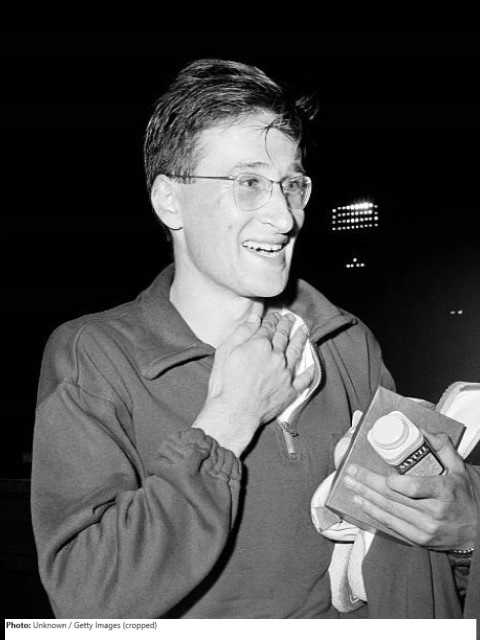
| Roles | Competed in Olympic Games |
|---|---|
| Sex | Male |
| Full name | Martin•Hyman |
| Used name | Martin•Hyman |
| Born | 3 July 1933 in Southampton, England (GBR) |
| Died | 3 April 2021 (aged 87 years 9 months) in Livingston, Scotland (GBR) |
| Measurements | 178 cm / 66 kg |
| Affiliations | Portsmouth AC, Portsmouth (GBR) |
| NOC |  Great Britain Great Britain |
Although born in Southampton, Martin Hyman lived in Jersey as a youngster, but just two weeks before the Germans invaded the island, he was sent to England as an evacuee. He had an unsettled childhood and attended many different schools. It was therefore quite remarkable that he should win a place at Southampton University when he was 18. He was in the university cross-country team and in his third year, had progressed from being an “also ran” into one of the best in the area.
In his last year at university, Portsmouth AC secretary Andy Gibb invited Hyman to join the club, which he did, and remained a member for 65 years, despite never living in the city. Before he started his serious career with Portsmouth, Hyman had to serve two years National Service. Being a conscientious objector, he worked with the ambulance service at Linz in Austria, looking after Hungarian refugees who fled the country after the 1956 Soviet invasion. During his time in Austria, Hyman continued his athletics training with the Linz AC.
Upon returning home in 1957, Hyman took a post-graduate course at Southampton University, and continued to compete in university athletics competitions, and was the 1958 National Universities cross-country champion. Hyman was third in the 1961 International Cross-country Championships at Nantes. He was by then also enjoying long-distance track and road racing, and he enjoyed one of the greatest moments of his career when he beat Ethiopian Olympic marathon champion Abebe Bikila to win the 1962 São Paulo “San Silvestre” New Year Race.
Hyman never won a AAAs title, but was second to Gordon Pirie in the six miles in 1960, and third in both 1958 and 1962. Hyman was four times ranked in the world top 10 for the 10,000 metres, and reached number two in 1959. He competed at the 1960 Rome Olympics and represented England at the 1958 and 1962 British Empire and Commonwealth Games. One of his finest performances in an international competition was in finishing fourth in the 10,000 at the 1962 European Championships in a race won by the Olympic champion Pyotr Bolotnikov.
When he was not away on international duty, Hyman raced most weekends for Portsmouth. He was club captain and, along with his friend Bruce Tulloh, who he met when a university post-graduate, helped elevate them to one of the best clubs in Europe. Hyman was the first Briton to break 28 minutes for the six miles, and his 10,000 record of 29:02.0 was still a club record at the time of his death, 60 years after he set it.
Hyman moved to Scotland in 1979 to take up a teaching post at Livingston, and duly joined the Livingston AAC where he was involved with training, coaching, and the staging of events. He was course designer for the 1995 World Mountain Running Championships at Holyrood Park, Edinburgh. One of Britain’s best, and most respected athletes, Martin Hyman was made an Honorary Life Member of Scottish Athletics. He later coached Elite British orienteers.
Personal Best: 10000 – 29:02.0 (1961).
| Games | Discipline (Sport) / Event | NOC / Team | Pos | Medal | As | |
|---|---|---|---|---|---|---|
| 1960 Summer Olympics | Athletics |  GBR GBR |
Martin Hyman | |||
| 10,000 metres, Men (Olympic) | 9 |